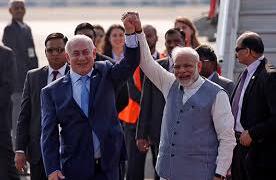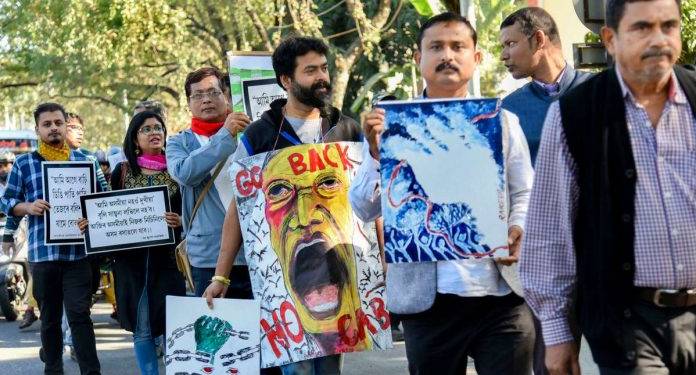Modi government has brought the Citizenship Amendment Bill, which seeks to provide Indian citizenship to members of communities, in minority in Pakistan, Afghanistan and Bangladesh that have fled religious persecution. These communities include Hindus, Sikhs, Christians, Buddhists, Jains and Parsis, all of whom are in minority, and whose numbers have fallen drastically in each of the three countries.
As the bill was tabled in Lok Sabha, the ‘establishment’ started its tricks and theatrics to oppose the bill. A group of 1,000 Indian scientists and scholars released a statement, against the Citizenship Amendment Bill, which, according to them- uses religion as a legal criterion for determining Indian citizenship- and opposed to the ‘idea of India’.
The statement has signatories from various IITs, the International Centre for Theoretical Sciences (ICTS, Bengaluru), Tata Institute of Fundamental Research (TIFR, Mumbai), Jawaharlal Nehru University (JNU), Birla Institute of Technology and Science (BITS), Indian Statistical Institute, and various other national and international institutes.
This opposition by scientists is akin to the ‘award wapsi drama’ started by the writers and academics, against the erosion of secular fabrics of the country. What is more appalling is- the space given to these ‘eminent citizens’ in the mainstream media. The statement of academics and scientists was carried out by almost every mainstream media house including Indian Today, Network 18, NDTV, ThePrint, and many others.
The space provided to these ‘eminent citizens’ is an excellent example of the ‘elitist view of democracy’ among the doyen of mainstream media houses.
These media moguls are not concerned about what the elected representative of the country had to say on an issue as important CAB, instead, they mock the government and opposition MPs for their ignorance.
For these media houses, what the ‘eminent citizens’ say (whose opinion or vote-as per the constitution of India- matters as much as that of a common citizen living in the remote village of the hinterland of India), matters more than that of elected MPs.
The job of the media, in my humble opinion, is to report about the functioning of the government (which in a broad sense includes opposition), and point out its mistakes, if any. Therefore, if the media reports that the opposition parties are vehemently opposed to this bill, and they have raised some fair points against CAB, that is perfectly fine.
In a representative democracy, the opposition is as important as the government, and the media should extensively cover what the elected representatives of the opposition parties have to argue on particular legislation. But, to report what ‘eminent citizens’ have to say on particular legislation, to which most of them do not have even a basic idea, is somewhat derogatory to common people of the country, and its democratic setup.
These eminent citizens (includes academics, writers, scientists, journalists, cinema stars, sports stars) are used to ‘elitist treatment’ from the previous governments.
These ‘eminent citizens’ call themselves ‘public intellectuals’ and give their opinion on almost everything-ranging from history to economics to law – and our mainstream media houses carry out detailed articles about their views.
In fact, the rise of ‘populist’ leaders is directly related to the hatred of common people against these elites. Since 2014, a plethora of texts has been published about the ‘shrinking space for public intellectuals’. Hurt with the backlash by common people, these ‘public intellectuals’ published books on the importance of public intellectuals in society.
Ashok Vajpayi, Romila Thapar, Ashis Nandy, Dipankar Gupta, Arundhati Roy, and Bhiku Parekh argued the space for democratic dissent is shrinking, and public intellectuals are ‘endangered species’. In fact, Romila Thapar published a book titled ‘The Public Intellectual in India’. In the West too, a series of books were published on why one should trust the public intellectuals.
The old elites, who were brokers in the corridors of power-but sometime more powerful than elected representatives- are not happy with the rise of ‘Populist’ regimes because the populist regime neither take them seriously nor agrees to share power with them.
But, the sections of mainstream media in India still gives space to these ‘eminent citizens’ and this is one of the reasons behind the backlash against it. As long as our media does not shed the ‘elitist view of democracy’, and stops giving space to ‘eminent citizens’, the backlash against them will continue.




























